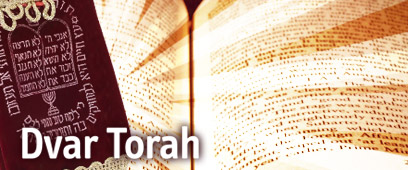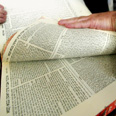

Illustration
Photo: Ata Awisat
Beginning with the Book of Exodus, the Torah takes a narrow view of polytheism, and of “alien Gods” (Deut. 31:16) in particular.
In this week’s parasha we read that Jacob built an altar in Bethel “for it was there that God had revealed Himself (niglu – plural - elav – literally: revealed themselves) to him when he was fleeing from his brother” (Gen. 35:7). Similarly, in Genesis 20:13, Abraham explains why he asked Sarah to masquerade as his sister, telling Abimelech “So when God made me wander (ka’asher hit’u – plural - oti elohim – literally: when the Gods made me wander) from my father’s house, I said to her…”
In Exodus 23:24 we are told: “you shall not bow down to their gods in worship...but shall tear them down.” In Deuteronomy 7:5 we are instructed in greater detail: “Instead, this is what you shall do to them: you shall tear down their altars, smash their pillars, cut down their sacred posts, and consign their images to the fire.”
To what extent does the Book of Genesis reflect this hostile attitude toward Canaanite gods?
Where’s the struggle?
When we examine the stories in Genesis, we discover an interesting fact. There is not a trace of a struggle or even of tension between the Patriarchs and the gods of Canaan. The Patriarchs do not smash any Canaanite altars or cut down any sacred pillars.
In the famous story of King Melchizedek of Salem (Gen. 14:18-20), a local priest, we are told that Abraham “gave him a tenth of everything”! In some places we even find the recognition of multiplicity gods.
Previous Parasha
Dr. Pinchas Mandel
Just as a family is not referred to by son’s name until father dies, so God is not referred to by name of a member of Israel until his father has passed on
At first glance, the story in this week’s parasha of Jacob disposing of the foreign gods before departing for Bethel reveals the same hostile view of foreign gods that we find in the laws of the Torah (Gen. 35:2-4). But here, too, we find a striking difference.
Jacob does not “tear down” the alien gods, as required by the Book of Exodus, nor does he consign them to the fire, as required by the Book of Deuteronomy. Rather, he buries them “and the rings that were in their ears” (the reference seems to be to the ears of the idols) “under the terebinth that was near Shechem.”
This would appear to be a burial ceremony like the burial of Rebecca’s nurse, Deborah, who was buried under the oak below Bethel (35:8). Thus the need to purify themselves and change clothing, mentioned in verse 2. Although this is clearly a rejection of alien gods, they are nevertheless paid “last respects.”
The gods are preserved intact. They are buried, and their grave is situated in a prominent, familiar place that could later be visited. It might be suggested that another verse might also be understood to imply a degree of respect for other gods: “You shall not revile God (elohim), nor put a curse upon a chieftain (nasi) among your people” (Exodus 22:27). In view of the parallel form of the verse, perhaps elohim should be translated “a god” to correspond with “a chieftain.”
This holds an important message for us. We do not have to adopt a hostile attitude toward other gods or religions, even if we view them as “idolatrous.” Even when Jacob rejects the alien gods, he does not destroy or burn them. He was able to express his rejection respectfully. As we have tried to show, the Book of Genesis speaks respectfully of other beliefs.
Moreover, just as there is no evidence that our Ancestors destroyed the gods and altars of the Canaanites, there is no evidence of the opposite. The Patriarchs built altars and raised pillars and called out to God. When the local residents wished to act against our Ancestors, they stopped up or stole their wells (Genesis 26:15-18), but we never find that the local populace destroyed the altars or tore down pillars dedicated to God.
It would seem that the respect that our ancestors showed toward the religious beliefs of the residents of Canaan was met by a corresponding respect for the beliefs of our Ancestors. If only we would learn the obvious lesson.
Rabbi Dr. David Frankel, lecturer in Bible at the Schechter Institute















